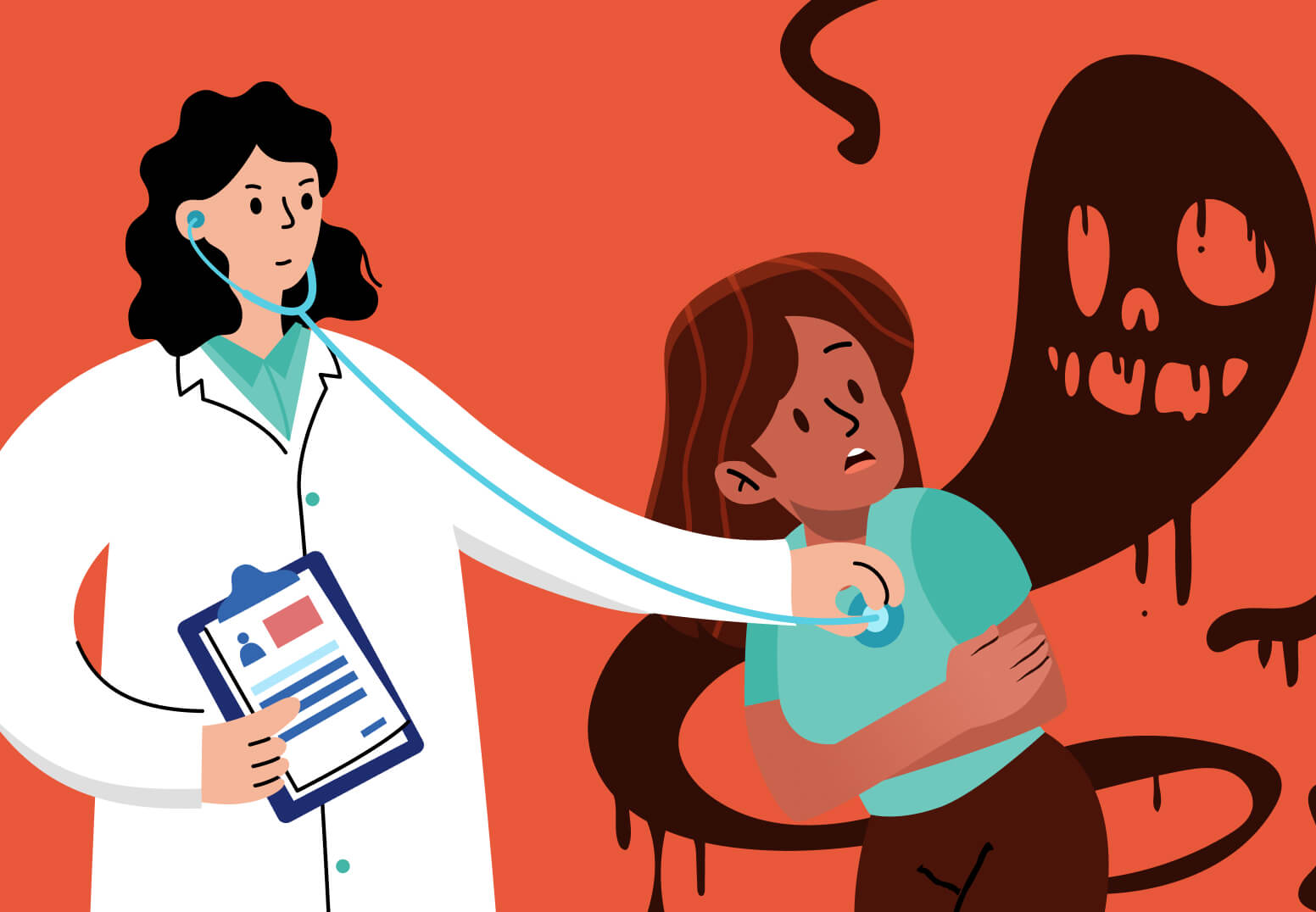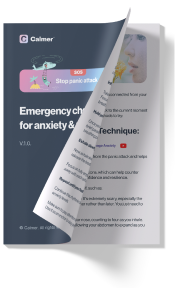Have you ever experienced anxiety symptoms so alarming you thought you were going to die?
You’re not alone!
Many individuals with anxiety experience symptoms so severe that they frequently mistake them for signs of terminal illnesses. This leads to repeated ER visits and constant health monitoring. Despite the medical tests coming back ok, many people still don’t understand what’s happening to them. As a result, the uncertainty and persistent doubt contribute to an ongoing cycle of anxiety.
To assist people like you, we have partnered with the best clinical psychologists we could find. These experts have drawn from years of professional experience to share insights about the most common symptoms observed in their patients.
Our goal is to create the most thorough list of anxiety symptoms and effective methods for their management and reduction.
We’ve combined professional insights of psychologists with an extensive analysis of thousands of comments and real-life experiences from various online groups and social media posts related to anxiety.
How can this help you?
First of all, simply seeing and understanding that you’re not alone in this struggle can help a lot. Here’s what some of the patients say after reading this article:
“Crying… I can’t believe I’m not the only one. I’ve felt so alone for so long. It brings a slight relief knowing others go through the same stuff, you’re not alone 💜”
“OMG. Seeing how many people struggle with this makes my anxiety less scary🫶”
This guide includes symptoms that are well-known, as well as those that many people are not aware of. By learning about these symptoms, you’ll gain valuable insights into how your body and mind react to stress. This knowledge can help you to reduce the frequency and intensity of anxiety episodes.
We hope this article encourages you to identify your anxiety triggers and apply the coping strategies discussed. With the right tools and community support, you can navigate through your anxiety and work toward a healthier, more balanced life.
Now, let’s dive into the most popular anxiety symptoms and make sure you read till the end – the coping strategies and the key takeaways are really useful!
Have you ever had a street fight?
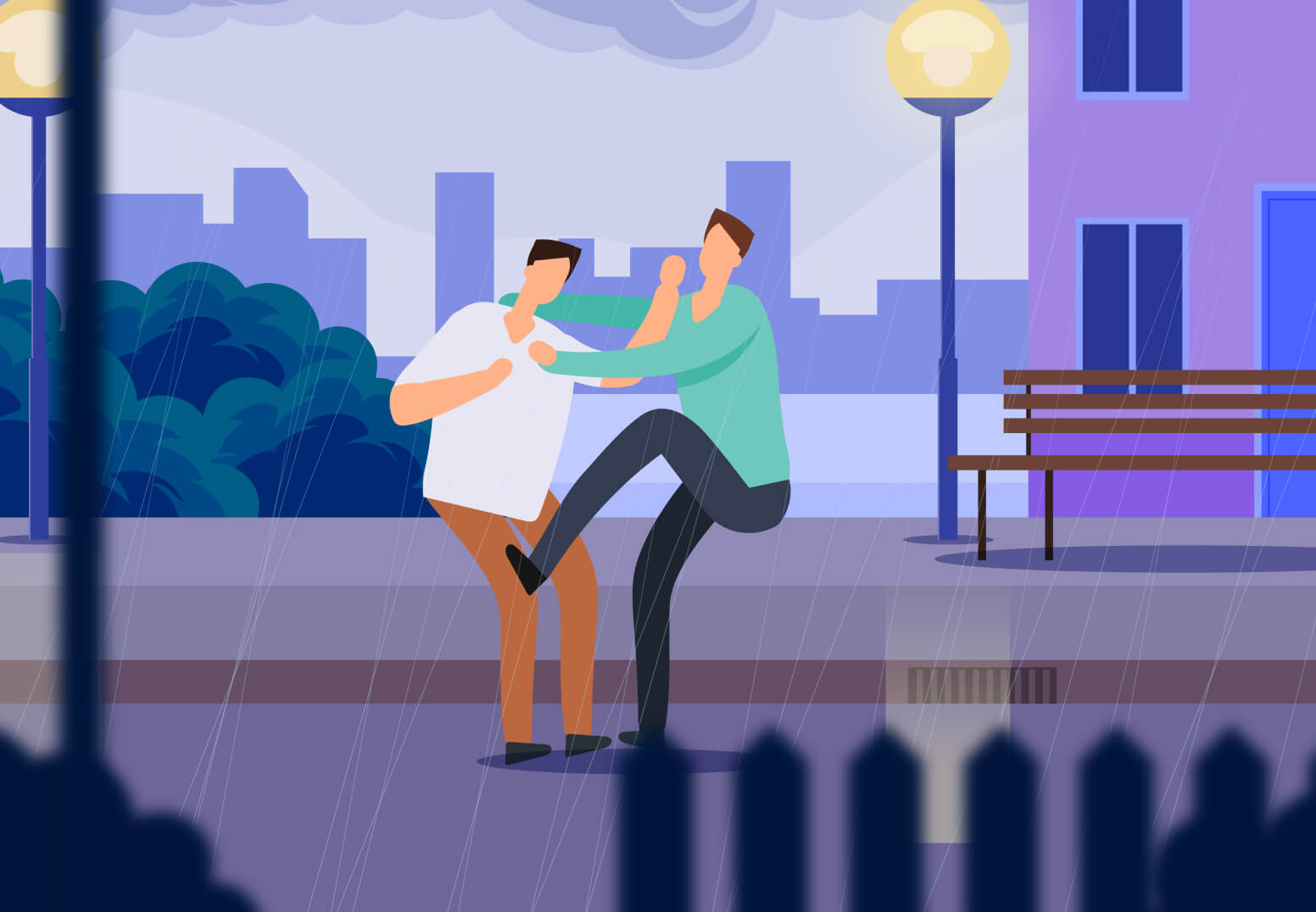
Recent years have not been the most peaceful around the globe, but arguably, the majority of people who deal with anxiety disorders today still live in physically safe environments. So they don’t often experience life-threatening assaults from predators or bad people.
Extreme situations can teach us a very useful thing about anxiety.
For better or worse, I have experienced both a couple of street fights and an anxiety disorder, so I can confirm that the fight or flight symptoms from physical threats are very similar to anxiety symptoms triggered by mental stressors.
When you’re in a situation where a fight is inevitable, your palms will start to sweat or get cold. Your heart will start pounding heavily. You might experience a pressing lump growing bigger in your throat, and it will start to suffocate you. You might also get tunnel vision, or get nauseated, or feel close to passing out.
As it turns out, mental stress can cause the same physiological symptoms. Your body treats all stress equally.
The difference between a fight and anxiety attack
In physical confrontations, symptoms like a pounding heart or sweaty palms quickly fade once the threat passes or you escape. However, modern stresses such as workplace disagreements, financial pressures, or social expectations do not resolve as swiftly, often leading to prolonged anxiety responses.
Unfortunately, our bodies have not yet perfectly adapted to distinguish between real and perceived threats, resulting in the same physiological responses whether you’re fleeing an attacker or stressing over what your colleagues think about you.
Recognizing that these responses are a natural part of our defense mechanism is the first step toward managing anxiety. To save yourself from burning out it’s crucial to learn to identify your anxiety triggers and systematically apply effective coping methods outlined in this article.
What are 18 most severe anxiety symptoms?
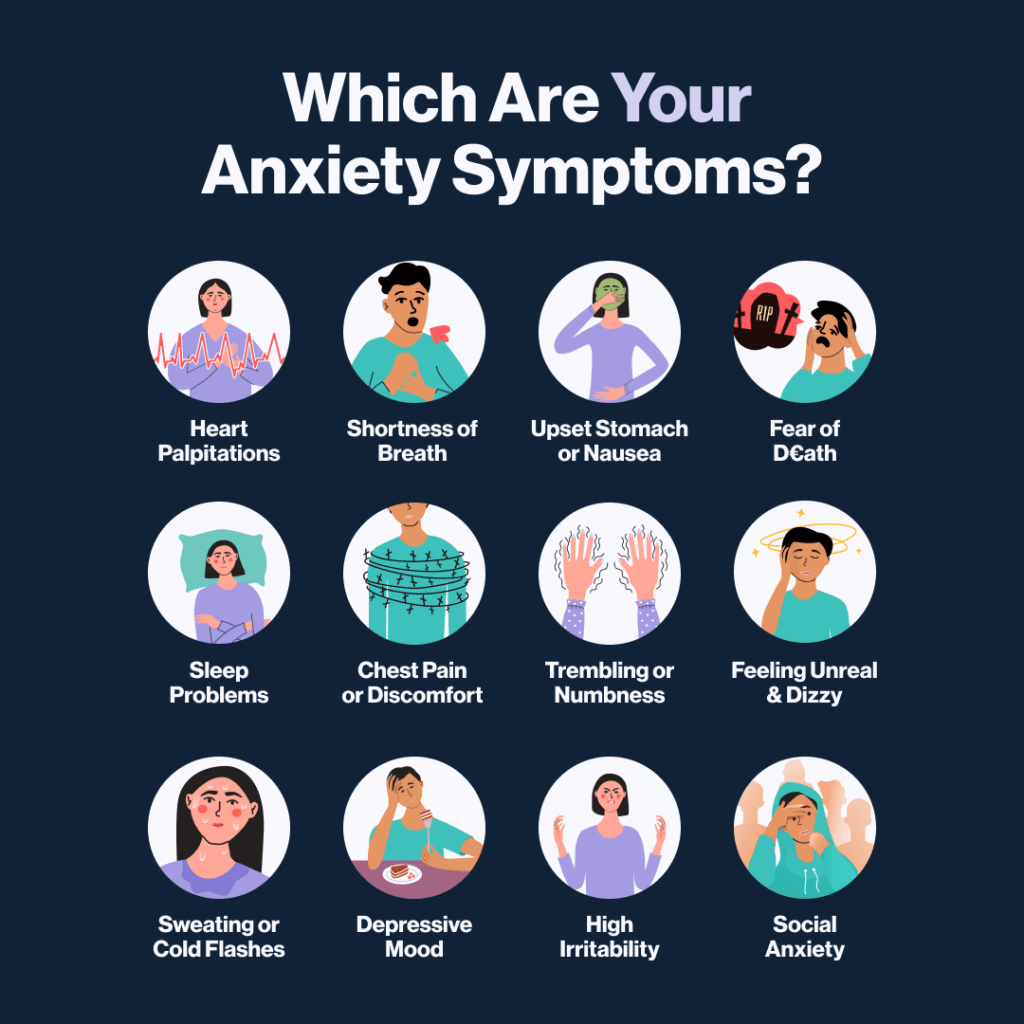
Here are the most severe anxiety symptoms we’ll be looking at in this article:
- Shortness of Breath
- Heart Palpitations
- The Alien Noodle-Arm
- Difficulty to Swallow (Dysphagia)
- Derealization
- Vertigo or Dizziness
- Sleep Apnea
- Chest Pain and Chest Tightness
- Chronic Intense Nausea
- Excruciating Stomach Pain
- Overthinking and Fear of Death
- Rashes & Hives
- Tension Headaches
- Trembling
- Numbness and Tingling
- Blurred Vision
- Ringing in Ears (Tinnitus)
Let’s uncover why they occur and how to get rid of them.
Shortness of Breath & Lump in Throat
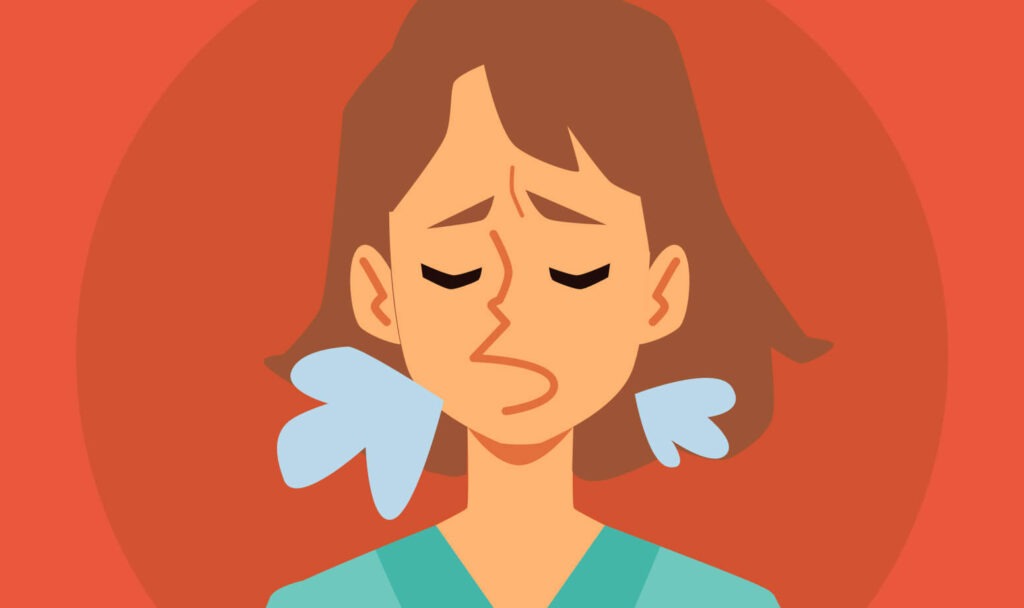
“Does anyone else feel like they are gasping for breath until that one breath feels right and you instantly relax?”
Many individuals describe a suffocating sensation or feeling unable to breathe deeply, which often leads to panic.
“I always feel like I can’t get a full breath and have to artificially try to yawn,” is a common expression among those experiencing this anxiety symptom.
Others note things like: “I’m struggling for air, and there’s a lump in my throat. I do a quick Google search, and it tells me I’m having a heart attack and it makes things worse 😓😅.”
What Causes Shortness of Breath in Anxiety?
Anxious shortness of breath is often linked to hyperventilation. This occurs when anxiety triggers an increase in breathing rate, leading to reduced carbon dioxide levels in the blood, which can cause feelings of air hunger, chest tightness, and other distressing symptoms.
This rapid breathing is often a response to the fight-or-flight mechanism, a physiological reaction to perceived threats, preparing the body for action by increasing oxygen intake.
“Sometimes, I end up yawning five to ten times consecutively to catch my breath,” illustrates how the body attempts to balance oxygen and carbon dioxide levels during episodes of anxiety.
How to Get Rid of Shortness of Breath Caused by Anxiety?
Often, the difficulty of catching a satisfying breath or a lump in the throat is the first signal that your nervous system is overloaded. Instead of panicking, consider it as friendly advice from your body to take a break and slow down both physically and mentally.
To quickly decrease this symptom, practicing slow, controlled breathing techniques such as diaphragmatic breathing can help.
Diaphragmatic breathing means that you expand your belly and rib cage as you inhale through the nose and then contract it as you slowly exhale through mouth.
The most effective research-based breathing method to reduce stress is the Physiological Sigh. You can find a guided interactive explanation of it by downloading the Calmer app on your phone.
This method helps stabilize the breathing pattern and prevent the cycle of hyperventilation.
Many patients say that another useful technique is to try coughing to clear the airways, as suggested by some who experience this symptom: “If you feel like you can’t breathe properly when you are anxious, I recommend you try to cough hard. It feels like it clears my chest and airways.”
Engaging in regular mindfulness exercises can also help focus the mind and reduce the anxiety that triggers this symptom.
Scary Heart Palpitations
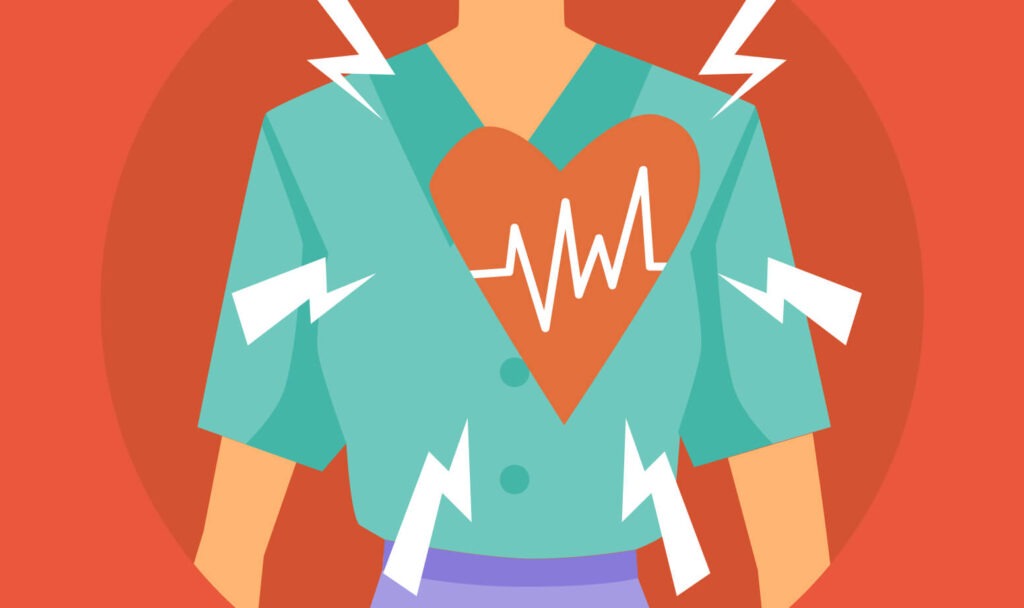
Many wonder if palpitations are normal with anxiety.
In fact, it’s one of the most common symptoms, and it’s totally normal and not dangerous if you don’t have any heart issues.
Heart palpitations associated with anxiety can feel like your heart is racing, fluttering, or even skipping beats. This fluttering is a terrifying experience, often leading individuals to worry they’re having a heart attack.
Real-Life Experiences of Anxiety-Induced Heart Palpitations
- Individuals frequently express fears that their palpitations signify severe cardiac issues: “I’m sometimes experiencing SKIPPING HEART BEATS. but my 2D echo and ECG is normal.”
- The recurring nature of these palpitations often leads to multiple, yet unnecessary ER visits: “Going to ER all the time when it happens and thinking something is wrong with me. Test always comes out okay, anxiety is tiring and scary.”
- Distracttion has helped some reduce the occurrence and fear of palpitations: “Every single day I fear it returning.. the way I got mine to go away a bit was just working my ass off just so I couldn’t think about it…”
What Causes Heart Palpitations During Anxiety?
When your body activates the stress response, your heart rate and blood pressure increase.
One of the key issues with increased heart rate from anxiety is that it feels inadequate and super scary to have a racing heart without doing any physical activity. It’s one thing to feel your heart racing after climbing the stairs. But feeling your heart pounding out of your chest when you suddenly wake up in the middle of the night – that’s a completely different experience.
It’s important to remember that this pounding and palpitations are generally not harmful and do not indicate a heart problem if you have been evaluated and found to have a healthy heart. The burden on the heart is generally the same, whether triggered by mental stress or physical exertion, as both scenarios demand increased cardiac output.
The other factor that makes anxiety-induced heart palpitations feel more uncomfortable is that anxiety triggers a strong release of stress hormones (like adrenaline and cortisol), which can cause the heart to beat irregularly. This is also normal. The only difference is the context and how you perceive this bodily reaction.
How do I stop heart palpitations from anxiety?
Clinical psychologists say that many of their anxiety patients find relief from heart symptoms by doing these 5 main things:
1. Accept it as a normal reaction
You have to fully accept that if you’re in a situation that’s making you extra stressed and anxious, elevated heart rate and palpitations are just one of the signs that your autonomic nervous system has switched on. There’s no need to stress about it. It’s a natural reaction, and your heart can handle it if you have tested it with a doctor.
2. Distracting your mind away from the heart rate
Focusing your mind on your heart rate will just make things worse. To distract yourself, you can call a friend, clean the fridge, watch a funny video, play some easy casual game, pet an animal, etc.
3. Do some light physical activity
Calming yourself down from a pounding heart is very challenging if you are sitting still or lying in bed. It’s almost impossible to think yourself out of a panic attack unless you have a black belt in meditation.
During a panic or anxiety attack, your whole body is geared up for action, so you need to release that pumped-up energy. Even if you were sleeping, it might be better to slowly get up and do some light stretching while you watch a soothing video.
You have lost your sleep anyway, and it’s usually much better to calm down with some yoga in 10 minutes than to spend 40 minutes tossing and turning in your bed.
4. Avoid anxiety triggers
Reducing the intake of caffeine, nicotine, and other elements can help manage palpitations.
Many people, including Tim Ferris, say that stopping their coffee intake after 13:00 helps them avoid sleep problems, as the effect of caffeine can last for several hours after the intake.
In people predisposed to anxiety disorders, caffeine can fuel a cascade of symptoms – that jittery feeling, hot flashes, sweaty palms, a pounding heart or a weird heart rhythm, shaking, tunnel vision, ringing in the ears, and overwhelming fear.
The more caffeine has been ingested, the more unpleasant the potential panic attack.
According to research, caffeine usage surpassing 400 mg has been shown to increase the likelihood of anxiety and panic attacks in a population.
We uncover more anxiety triggers in the Calmer app.
5. Get adequate rest
Ensuring sufficient sleep can help reduce anxiety levels and associated symptoms like palpitations.
If palpitations persist or you have not been evaluated by a healthcare professional, it’s important to seek medical advice to rule out any underlying conditions.
Often, understanding that palpitations are linked to anxiety and not a heart condition can provide significant relief.
Numbness and Tingling
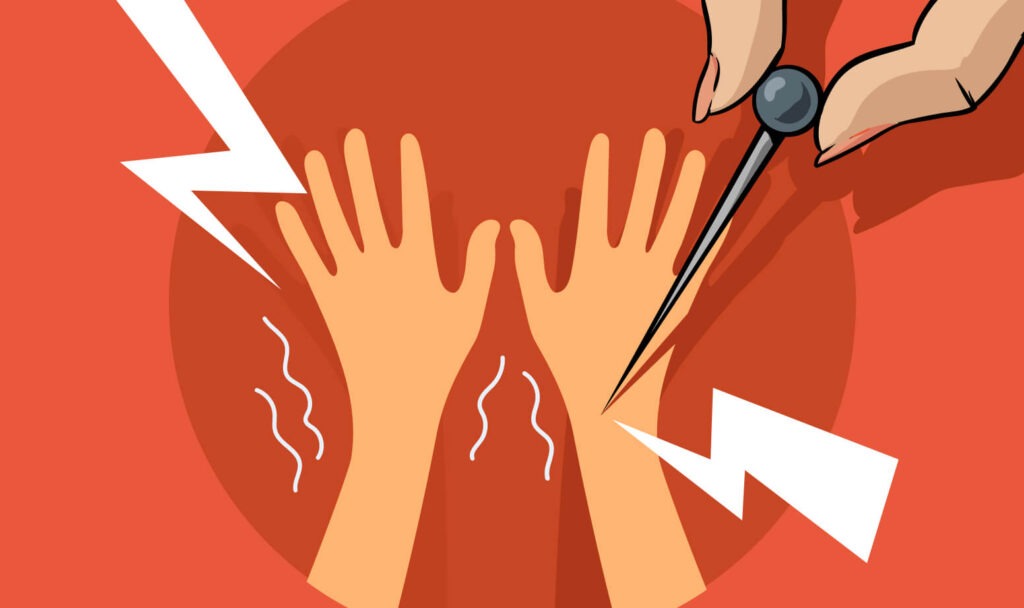
Individuals with anxiety often report sudden, inexplicable numbness or tingling, particularly in the extremities. “My hands and feet go numb when I’m really anxious,” and “I get these weird tingling sensations all over, which make me panic even more.”
This symptom can be particularly alarming, causing fears of serious health issues like strokes or seizures.
“The worst part is when my entire face goes numb, and I can barely move my mouth to speak, making me think I’m having a stroke,” and “Sometimes, my arms and legs go completely numb, and I’m convinced I’m seizing out.”
How Can Anxiety Cause Numbness & Tingling?
The sensation of numbness and tingling is commonly associated with anxiety-induced hyperventilation. Hyperventilation leads to a decrease in carbon dioxide levels in the blood, which can cause a reduction in blood flow to the nerves and result in these sensations.
Additionally, intense anxiety can trigger muscle tension that contributes to feelings of numbness, especially around the neck, back, and limbs. “When my anxiety spikes, the back of my neck goes numb, adding to my panic,” illustrates how physical symptoms exacerbate fear. It’s ok though, if you remember that it’s your body getting ready to battle or run for cover.
How to Get Rid of Numbness & Tingling From Anxiety?
- Breathing Exercises: Since hyperventilation is a common trigger for this symptom, learning and practicing controlled and slow diaphragm breathing techniques can help regulate your body’s response.
- Mindfulness and Relaxation: Techniques such as guided imagery, progressive muscle relaxation, or mindfulness meditation can reduce overall anxiety and prevent episodes of numbness and tingling.
- Physical Engagement: Gentle exercises, like walking or stretching, can help restore normal blood flow and reduce the intensity of the tingling and numbness.
- Consultation and Therapy: If numbness and tingling are frequent and disruptive, consulting a healthcare provider can help rule out other causes and provide strategies for managing anxiety. Cognitive-behavioral therapy (CBT) is particularly effective in treating anxiety symptoms and can provide long-term relief.
The Alien Noodle-Arm Symptom
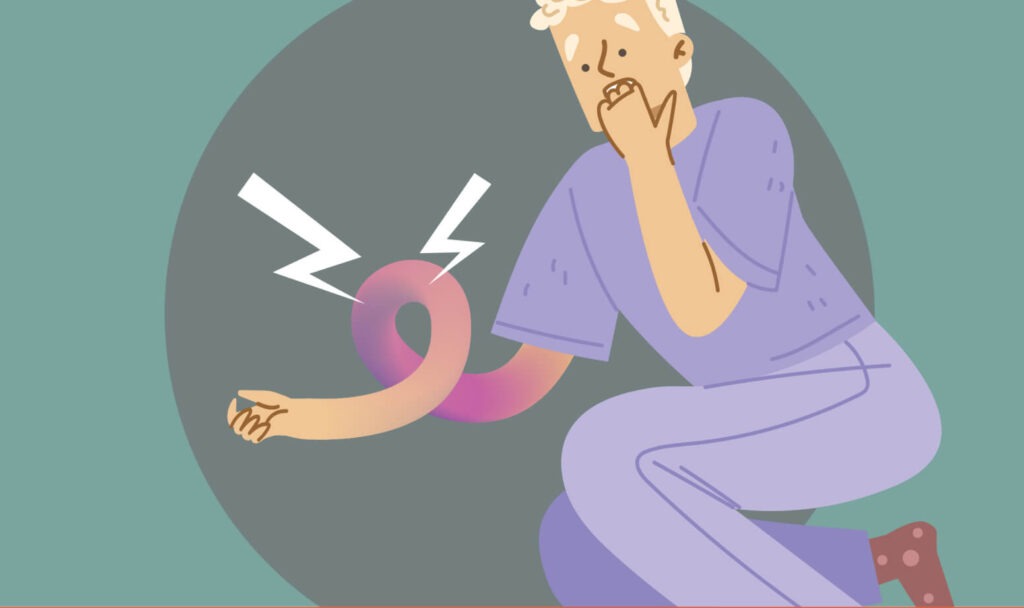
Here’s a subtype of the numbness symptom family that many people with anxiety report:
“Often, I wake up at around 1 or 3 in the morning with one arm completely numb to the point where it feels like an alien noodle attached to my torso. Then I start to wiggle that noodle around in total panic, afraid that this time the blood flow and senses might not return to it. It’s a terrifying feeling. Then slowly, the blood flow restarts, accompanied by a jolt of pain flashing through that arm.”
Furthermore, such numbness can accompany the sensation that your heartbeat is barely perceptible. This can make you think that it’s about to stop completely. However, it’s important to remember that these symptoms are generally harmless.
What Causes The Numb Arm Symptom?
Restricted blood flow due to raised arms. If you’re sleeping with your hands raised above the head, it can compress a nerve or restrict blood flow to the arms. Anxiety can intensify the perception of these symptoms.
Hypervigilance. If you combine compressed blood flow due to raised arms with an anxious nervous system that can lead to unexpected glitches, you can get some scary moments. Anxiety can sometimes cause a heightened awareness of bodily sensations, which paradoxically might include the sensation of not feeling one’s heartbeat strongly enough, especially if you wake up during a deep sleep phase that normally has a lowered heart rate.
This can be particularly noticeable at night when external distractions are minimal, and you are more aware of your physical sensations. This awareness could lead to further anxiety, reinforcing the cycle.
Unique Fight-or-Flight Response. Under stress or during an anxiety attack, the body’s fight-or-flight response can cause a variety of physical symptoms. While most people experience a heightened heart rate, some can get the opposite – a decreased heart rate. When we think about our ancestors, not all danger could be solved by fighting, sometimes you had to stay silent or act dead to survive. Although the heart rate typically increases, in some cases, palpitations or the intense focus on the heart might lead to a subjective feeling that the heart is slowing down or stopping, even if medically, the heart rate is normal or elevated.
Difficulty to swallow (Dysphagia)
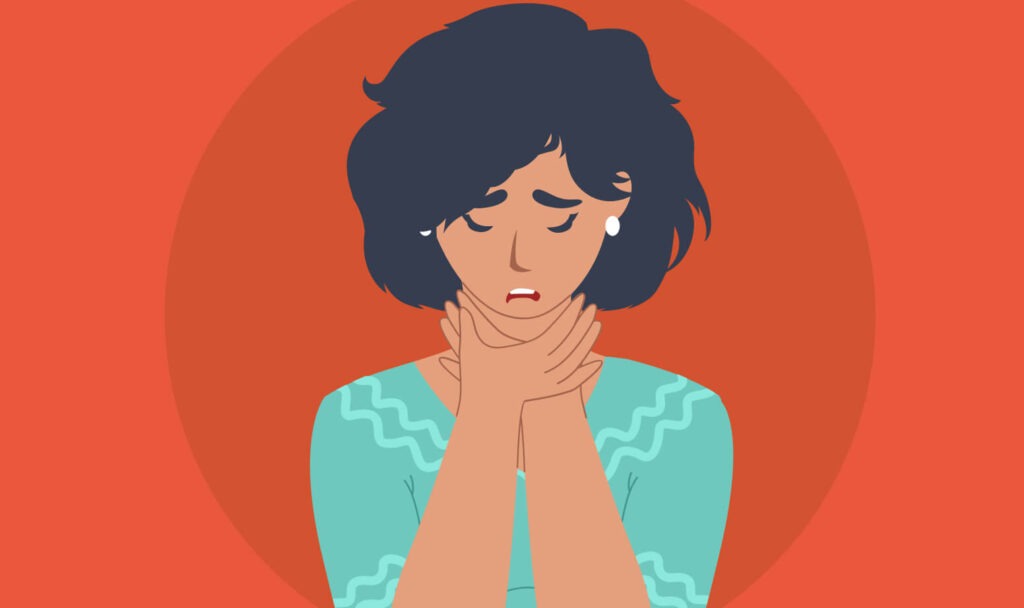
This is a weird one that catches most of the people by total surprise.
Imagine you are eating soup and then suddenly, when trying to down the fifth spoonful, you can’t swallow it and almost choke on the soup.
It feels like someone has turned off your swallowing reflex.
This symptom involves a persistent sensation of having a lump in the throat.
Real-Life Experiences of Losing the Ability to Swallow
- “It feels like I’m choking on something, but nothing’s there.”
- “Swallowing becomes so difficult, I sometimes avoid eating in public”
- “I constantly need to clear my throat, but it never really clears.”
What Causes Swallowing Difficulties in Anxiety?
The muscle in your throat at the top of the esophagus (upper esophageal sphincter) may experience increased pressure during anxiety. When under stress or experiencing anxiety, people often tense their throats or swallow more frequently. This, in turn, can lead to experiencing the glitchy loss of swallowing ability.
This perceived obstruction is not physical but a sensation that can intensify with emotional distress and more thinking about it.
How to Get Rid of Anxiety Swallowing Difficulties during Anxiety?
The swallowing issue, just like the lump in your throat, is a temporary symptom. It goes away when the feelings of stress or anxiety have passed. So, if you have checked yourself for other illnesses, there may not be a reason to take much action.
Additionally, engaging in relaxation exercises such as deep breathing or guided imagery to help reduce throat tension.
Vertigo or Dizziness
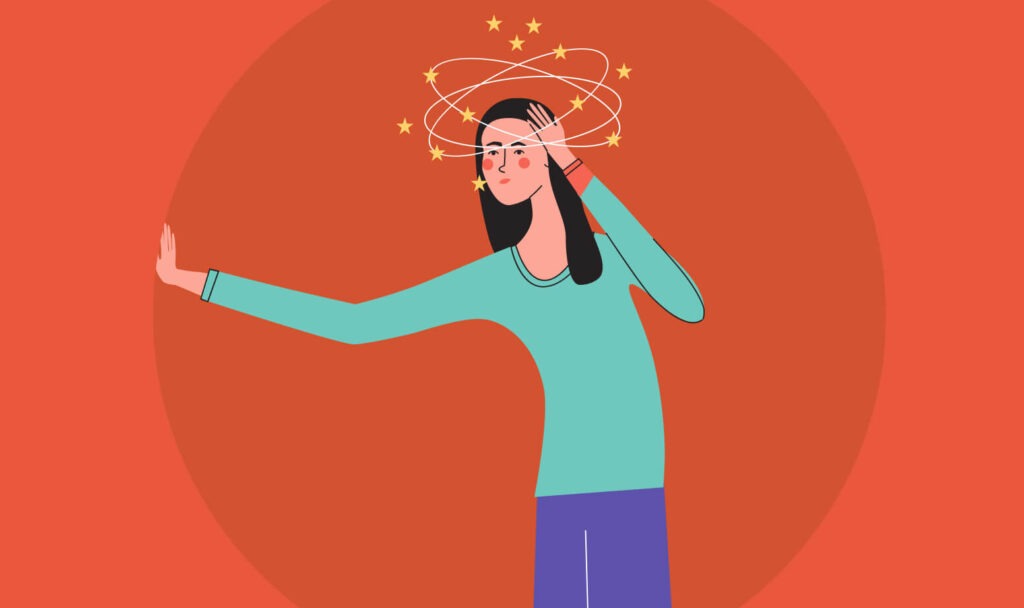
Can Anxiety Cause Vertigo? Yes! Vertigo and dizziness are common symptoms that many with anxiety can experience, often described as feeling like you’re spinning or that the world around you is spinning.
Real-Life Experiences of Anxiety Vertigo
- “Vertigo makes me feel like I have a brain tumor, then I have more anxiety.”
- “The dizziness is so disconcerting and then I get anxiety about being dizzy and I get more dizzy.”
- “I had so many brain scans because of the dizzy and it’s just anxiety.”
- “Sometimes everything just starts spinning, and I can’t focus my eyes,” highlights the disorienting nature of this symptom.
- “It feels like I’m looking through water; everything’s so blurry,” and “Losing balance is scary sometimes,” are typical descriptions of how vertigo affects daily life.
- “I feel like I’m walking on a cloud, and then suddenly, I get dizzy,” and “Duuuuude, the vertigo and balance issues are so real—legit feel like I’m on an elevator all day long.”
- “I’ve fainted at least 5 times and had stitches 3 times from anxiety attacks. Dizzy daily. It’s so hard to live a normal life.”
- “I feel like moving when I’m actually sitting at my computer.”
What Causes Dizziness During Anxiety?
Often, the dizziness symptom is from the impact of stress hormones, such as adrenaline and cortisol, which can affect the vestibular system of the inner ear.
This effect is then amplified by the emotional unsteadiness of an anxious person, which may cause a self-fulfilled loop of dizziness escalation.
Also, when blood pressure suddenly drops due to anxiety, it can cause you to feel dizzy and confused.
As usual with other anxiety symptoms, also dizziness can be caused by hyperventilation or unnatural breathing patterns, which deprive the brain of oxygen and can cause a person to feel dizzy or even faint.
How to Get Rid of Anxiety Dizziness?
Grounding Techniques. Focusing on stable, non-moving objects can help reduce feelings of dizziness. Lean on to something while trying to distract your thoughts from the symptom.
Controlled Breathing. Slow, deep breathing exercises can help prevent hyperventilation and stabilize bodily sensations.
Gradual Exposure. Slowly increasing exposure to situations that trigger dizziness can help reduce sensitivity over time.
Castor oil 🦫. Some people report that rubbing castor oil inside and around their ears has helped them to reduce dizziness. There is no research that can confirm this, as far as we know, and it’s most likely to be a placebo effect.
Professional Guidance. Consulting with a healthcare provider to explore possible non-anxiety-related causes of dizziness, such as inner ear issues, is also advisable.
Blurred Vision
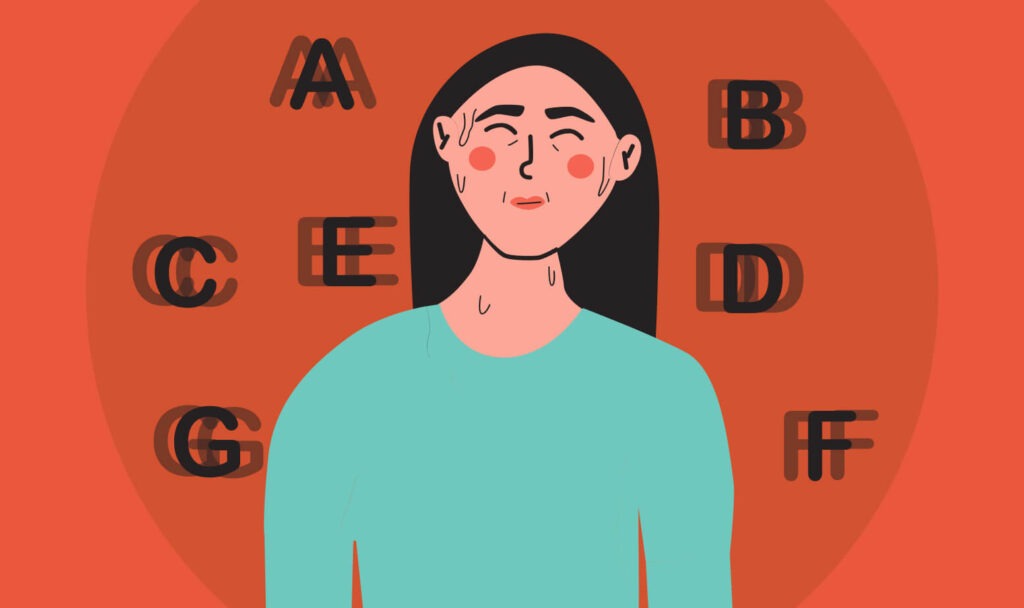
Blurred vision is a common symptom of anxiety, often described by sufferers as feeling as if they can’t focus visually or as if they are looking through a fog.
Real-Life Experiences of Anxiety-Induced Blurred Vision
- “I call it vision anxiety, and I get it a lot. Can’t even describe what it’s like but feels like I can’t see properly even though I can, and it suc#s. Once I get it, I can’t stop focusing on it, and it makes my anxiety worse, and so the cycle begins.”
- “It makes the anxiety worse because I think I can’t see, am squinting, etc. Just had an eye exam about a month ago that was great. Anxiety is a real beast of a thing… it’s terrifying what it can do.”
- “It felt like my glasses were fogging, but it was my vision. Also freaked out because it felt like I was moving, sort of. I had a rough evening with my parents, so I was crying beforehand.”
What Causes the Anxiety-Related Blurred Vision
Blurred vision during anxiety may result from the heightened state of alertness that shifts the body’s focus away from normal vision processing. The stress hormones can also alter the normal functioning of the eyes and lead to visual disturbances.
How to Get Rid of Anxiety-Induced Blurred Vision?
Grounding Techniques. Focusing on specific, stable objects can help reorient visual perception and reduce the feeling of blurred vision.
Controlled Breathing. Slow and deep breathing can help manage the physiological effects of anxiety and stabilize vision.
Derealization from Anxiety
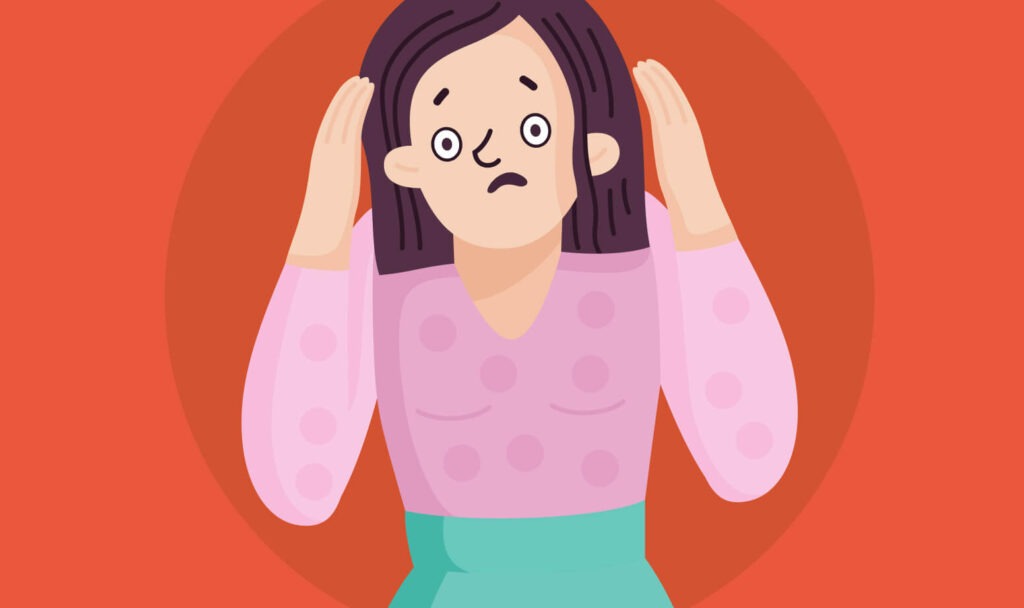
Common descriptions of anxiety induced derealization include feeling like you’re watching yourself in a movie or that the world around you doesn’t seem real.
Real-Life Experiences of Anxiety-Induced Derealization
- “I remember experiencing derealization for the first time. I thought I was going crazy and felt like I was going to die 😭.”
- “Walking around feeling like I didn’t know myself or anything around me was terrifying!”
- “Everything seems unreal, which freaks me out.”
- “I’ve been stuck in a state of derealization for months… it’s the worst feeling.”
- “It gets worse when I’m driving. I feel so detached; it’s horrifying.”
- “I can’t even look after my kids properly anymore because everything feels so strange and distant 🥺.”
What Causes Derealization During Anxiety?
Derealization often stems from the brain’s response to severe stress or anxiety. It acts as a coping mechanism, a way the mind copes with too much stress or trauma. It’s as if your mind is trying to distance oneself from the stress by making things feel less real.
As one anxiety sufferer writes: “Dissociation with anxiety is just your body’s way of protecting you, but it doesn’t make it any less scary,” reminding us that despite its defensive role, the experience can still be deeply unsettling.
This can be triggered by the brain’s overactivation in processing emotions and environmental stimuli, leading to a breakdown in how reality is perceived.
Stress hormones like cortisol can disrupt the normal functioning of nerve signals, contributing to this feeling of detachment.
How to Get Rid of Derealization Caused by Anxiety?
Distract yourself. “Distraction helps a lot. It’s a feeling – it goes away if you pick it up less and less. The more you chew it, the stronger it gets. You can beat it. It’s difficult at first, yes, but you can do it.” — A patient emphasizes the power of distraction and reducing focus on the symptoms as a way to weaken their impact. Another says: “Forget it. The way to beat it is to forget it… It’s just a feeling which is a symptom of anxiety.” — Recommending that less attention to the feeling and avoiding obsessing over symptoms like derealization can lessen their severity and frequency.
If you can’t distract yourself, face the feeling. “I completely understand this feeling… I’ve been trying to get out more, and the other day I just hopped in my car and didn’t even think about it. When I’m at the store and feeling anxious, I just let the thoughts pass through instead of running away from them.” — This person shares how actively facing anxiety instead of avoiding it has helped them cope with derealization.
Professional Therapy. Cognitive Behavioral Therapy (CBT) and other forms of counseling can address the root causes of anxiety and derealization.
Medication. In some cases, doctors may prescribe medications to help manage the symptoms of severe anxiety and derealization.
Routine and Structure. Maintaining a daily routine can provide a sense of normalcy and stability.
Support Groups: Connecting with others experiencing similar symptoms can validate your experiences and provide comfort.
Managing derealization involves a combination of professional help, self-help strategies, and lifestyle adjustments to mitigate the impact of anxiety on your perception of reality.
Tension Headaches from Anxiety
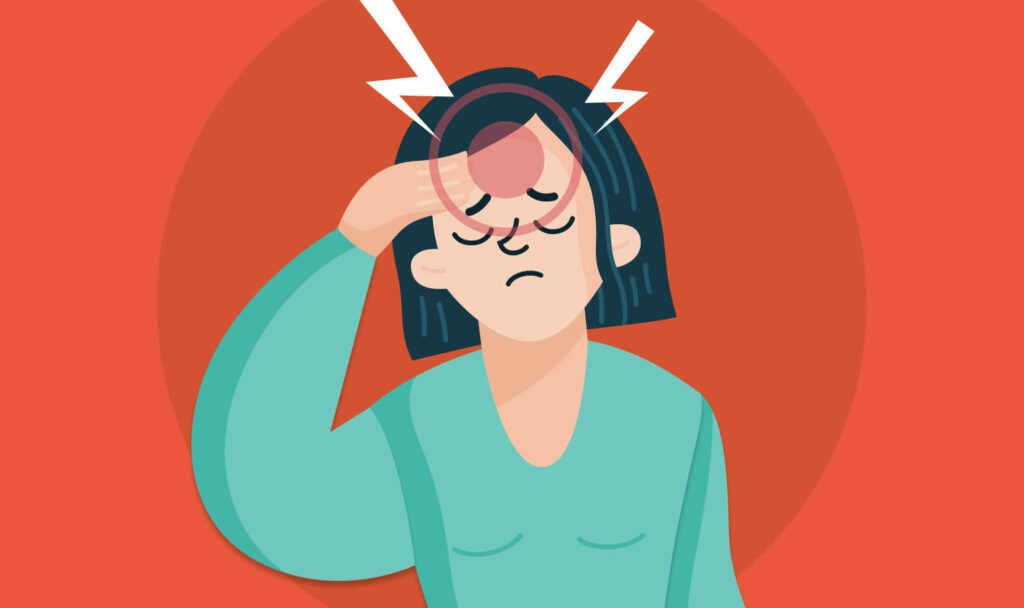
Tension headaches, commonly experienced by those with anxiety, can manifest as persistent, dull pressure or tightness, often described as feeling like a band squeezing the head.
Real-Life Experiences of Anxiety-Induced Tension Headaches
- “I’ve had tension headaches so bad I was convinced it was a brain tumor. I went through countless tests, all clear.”
- “My tension headache lasted for months; I was in constant pain and it seriously impacted my daily life.”
- “The pain would spike so severely that I found myself visiting the ER, scared I was having something much more serious.”
- “After numerous hospital visits and normal scans, my doctor suggested anxiety might be the root cause of my persistent headaches.”
- “It was a relief to find out it was ‘just’ anxiety, but it didn’t make the pain any less real or frightening.”
What Causes Tension Headaches During Anxiety?
Tension headaches in the context of anxiety may be triggered by:
Muscle Strain: Chronic anxiety can lead to muscle tension in the neck, shoulders, and scalp, which contributes to headache pain.
Emotional Stress: Anxiety increases the body’s production of stress hormones like cortisol, which can tighten muscles and amplify headache pain.
Hyperarousal: Anxiety can heighten the nervous system’s state of arousal, exacerbating sensitivity to pain and discomfort.
How to Get Rid of Tension Headaches Caused by Anxiety?
Effective coping strategies shared by those with similar experiences include:
- Stress Management: Regular relaxation techniques such as deep breathing, yoga, or meditation can help reduce overall stress and alleviate the frequency of tension headaches.
- Physical Therapy: Some find relief through physical therapy techniques that focus on relaxing and strengthening the muscles of the neck and shoulders.
- Mindfulness Practices: Staying present and grounded can prevent spiraling thoughts that exacerbate headaches.
- Routine Medical Consultation: Engaging regularly with a healthcare provider can help manage symptoms effectively and rule out other causes.
- Support and Therapy: Cognitive Behavioral Therapy (CBT) and support groups for anxiety can provide tools for managing stress and reducing the impact of anxiety on physical health.
Personal anecdotes from patients highlight various personal coping mechanisms:
- “I started using a heating pad on my neck and shoulders, which seems to help relieve the tension and reduce headache frequency.”
- “Regular exercise and staying hydrated have made a noticeable difference in my anxiety and lessened the severity of my headaches.”
- “Joining a support group helped me feel less alone and gave me practical strategies for handling my anxiety and headaches.”
Combining professional guidance with tested personal experiences can offer a comprehensive approach to managing and potentially reducing tension headaches associated with anxiety.
Trembling in Anxiety
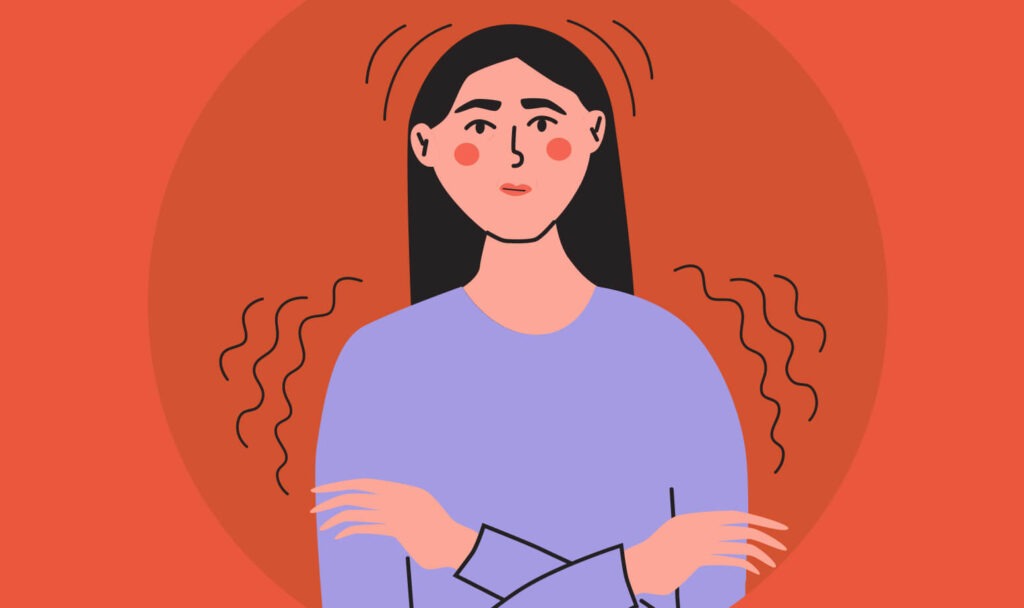
Trembling, shaking, and tremors are common physical manifestations of anxiety, often described as feeling vibrations or a sense of inner tremors that can’t be controlled.
Real-Life Experiences of Anxiety-Induced Trembling
- “It’s like I’m constantly on a vibrating bed, especially when trying to sleep.”
- “I feel like my body has its own buzzing that doesn’t stop, even when I’m trying to relax.”
- “The trembling starts on the inside but then it can manifest so everyone can see, it’s so embarrassing.”
What Causes Trembling During Anxiety?
Trembling during anxiety episodes often results from the body’s acute stress response, commonly known as the ‘fight or flight’ response. This physiological reaction involves the release of adrenaline and other stress hormones, which prepare the body to either confront or flee from perceived danger. These hormones cause a range of symptoms, including increased heart rate, heightened senses, and muscle tension, which can manifest as noticeable shaking or trembling.
How to Get Rid of Anxiety Trembling?
The patients often report that they egt improvements from coping strategies like engaging in grounding exercises or practicing mindfulness to help manage the physical sensation of trembling when it feels overwhelming.
Many people emphasize the effectiveness of accepting the sensation rather than fighting it: “Accepting that it’s just my body’s way of reacting to stress helped me cope better,” while others mentioned the benefits of distraction and engaging in hobbies to shift focus away from the anxiety and trembling.
Bloating, Burping & Other Stomach Issues
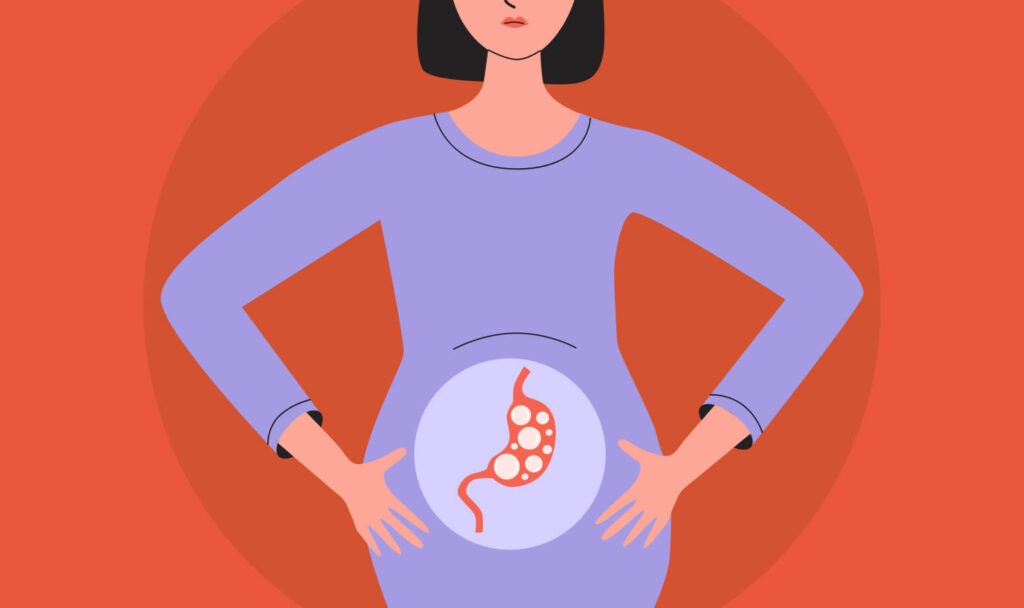
Anxiety often manifests in various stomach issues, including bloating, nausea, and frequent burping, which can be as disruptive as they are distressing.
Real-Life Experiences of Anxiety-Related Stomach Issues
- “I have stomach cramps all the time after eating.”
- “Yeah and feeling like throwing up, after every meal.”
- “Yep, my symptoms for a panic attack are basically the same as having food poisoning.”
- “I have acid reflux and indigestion… but it feels like my food is stuck, and I burp all day.”
- “True, I didn’t realize that was from anxiety.”
- “For me, I feel cramps all over my abdominal area, even in my uterus, lady’s part, and armpits. It’s like my whole body shrinks or something 🥺.”
- “My stomach often hurts. Like a lot whenever I get anxious my stomach starts to hurt really bad and I start fidgeting with my hands.”
- “Not stomach cramps but that butterflies in your stomach kind of nauseous feeling.”
- “Me, I get it badly, especially when I’m also very stressed.”
- “Whenever I get nervous my stomach starts to hurt and I start getting gassy💀.”
What Causes Stomach Issues During Anxiety?
The link between anxiety and stomach problems is often due to the usual suspect – your body’s physiological response to stress. The nervous system’s ‘fight or flight’ reaction can slow down or disrupt normal digestive processes, leading to symptoms like nausea, indigestion, or bloating.
How to Manage Anxiety-Related Stomach Issues
Paused digestion is a natural reaction to stress, so obviously the primary way to reduce the symptoms is by managing the stress. The usual techniques such as deep breathing, meditation, or yoga can reduce overall anxiety levels, thereby alleviating stress-induced stomach issues.
On top of that, people report these methods as helpful:
- Diet Adjustments. Avoid foods known to exacerbate stomach issues, like spicy or very rich foods, and eat smaller, more frequent meals.
- Mindful Eating.Taking the time to eat slowly and chew thoroughly can help prevent symptoms like bloating and discomfort.
“Keeping a food diary helped me identify trigger foods and manage my symptoms better” — this approach allowed an individual to pinpoint what worsens their anxiety-induced stomach issues.
- Yoga. “I started practicing yoga regularly, and it’s been great for reducing my stress and helping with digestion” — incorporating yoga helped another person alleviate their symptoms by lowering their stress levels.
- Ginger. “Ginger tea has been a lifesaver for settling my stomach on bad days” — someone found relief from nausea and stomach discomfort through natural remedies.
- CBT therapy. “Cognitive Behavioral Therapy helped me address the root causes of my anxiety, significantly improving my gastrointestinal symptoms” — tackling anxiety through professional help also alleviated stomach issues for another sufferer.
By understanding and addressing both the psychological triggers and the physiological responses, individuals can significantly reduce the severity and frequency of these stomach issues.
Overthinking During Anxiety
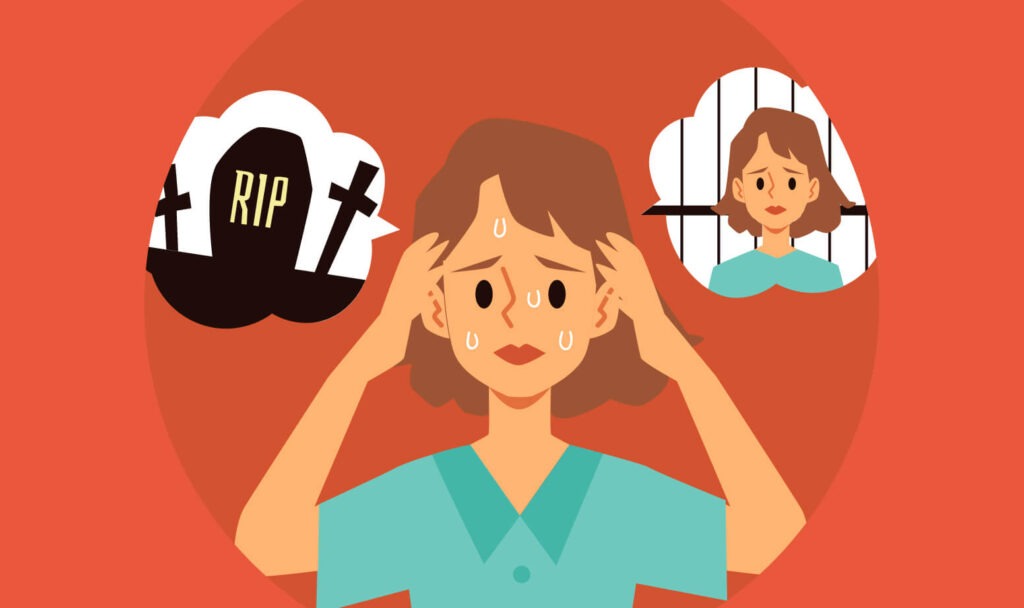
Overthinking, often seen as endless rumination and excessive worry, can dominate the minds of those struggling with anxiety, making it hard to focus on anything else.
Real-Life Experiences of Anxiety-Related Overthinking
- “I’m 15 and for around three weeks or so, I’ve been just overthinking so many things, and I’m hyper-aware of every single little thing. I’ve been stuck.”
- “Someone hit me, so I could cry instead and divert my focus. Or take my heart out, so I won’t feel the heart palpitations as I get anxious and stressed. It’s frustrating and simply tires me out.”
- “It took me 9 years to beat overthinking. I’ll tell you how to in 3 minutes. The problem is rarely the problem. 99% of the harm is caused in your head, by you and your thoughts. 1% of the harm is caused by the reality, what actually happens, and the outcome.”
What Causes Overthinking During Anxiety?
Overthinking is typically triggered by the brain’s response to stress. The more stress in your life, the more your mind thinks you’re in mortal danger.
Now think about this—the human race didn’t survive by focusing on the positive aspects of life. Survival is based on the mind’s ability to constantly analyze potential dangers and prepare defensive strategies.
It’s a great skill if you don’t let every little detail stress you out. But this mental state can be exhausting and counterproductive if you haven’t learned to manage and compartmentalize stressors. Then your mind is only intensifying the anxiety it’s supposed to mitigate.
How to Get Rid of Overthinking Caused by Anxiety?
Here are some insights from people affected by anxiety about strategies they found helpful in managing overthinking:
- Structured Problem Solving: “I try to structure my thinking with time limits. I set aside 20 minutes to worry, then I force myself to move on to something more productive.” This approach helps to contain overthinking to a manageable timeframe.
- Meditation and Mindfulness: “Daily meditation has been a game changer for me. It helps me recognize when I’m spiraling into overthinking and lets me redirect my thoughts.”
- Physical Activity: “Whenever I catch myself overthinking, I go for a run or do some physical activity. It helps reset my mind.”
- Writing and Journaling: “Writing down my thoughts really helps. It’s like I’m transferring them from my head onto paper, which somehow makes them less intimidating.”
- Engaging in Hobbies: “Focusing on hobbies that keep my hands and mind busy really helps prevent me from overthinking. Things like knitting or woodworking require enough concentration that I can’t dwell on other things.”
- Cognitive Behavioral Techniques: “CBT has helped me a lot. Learning to challenge my own irrational thoughts and see things more realistically has reduced my overthinking.”
- Talking it Out: “Sometimes just talking through what I’m overthinking with someone else helps me see how illogical some of my fears are.”
These strategies are shared by individuals who have found personal success in managing their anxiety and overthinking, offering real-life solutions that might resonate with others experiencing similar challenges.
Rashes & Hives
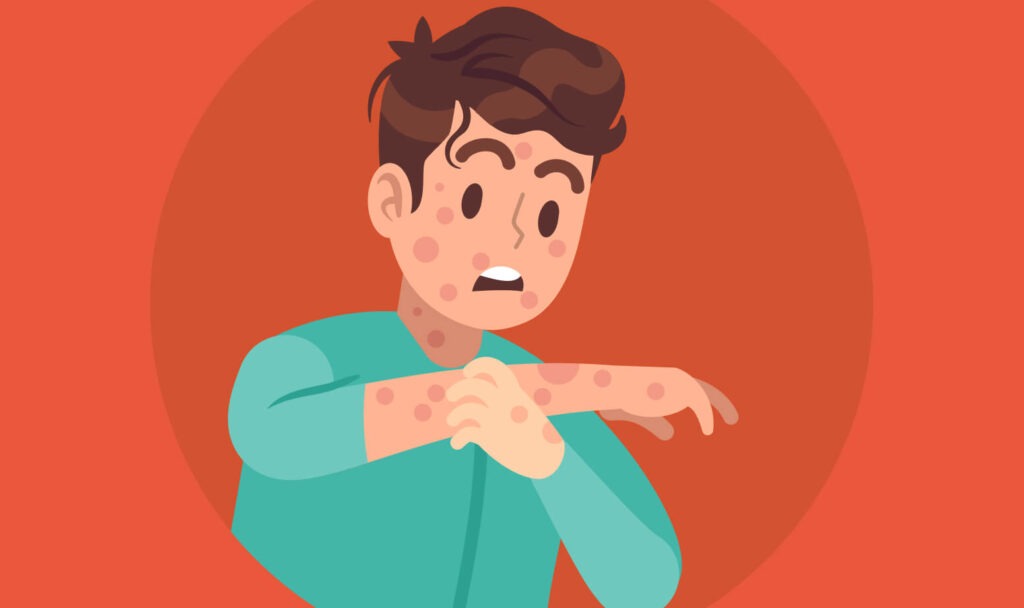
Anxiety can manifest physically in many ways, including the appearance of itchy rash, hives and swellings on your skin. These symptoms are not only uncomfortable but can also be alarming, leading to further anxiety.
Real-Life Experiences of Anxiety-Induced Rashe
- “I have hives and swellings due to anxiety or stress. I’ve had it for four years now, and it started when I was under extreme stress. My doctors don’t have answers and won’t respond to me.”
- “An anxiety rash may appear as an itchy rash or as hives, which may occur anywhere on the body. It is due to high levels of anxiety, rather than other causes such as allergies.”
- “I get itchy skin when my anxiety kicks in.”
What Causes Hives and Swellings During Anxiety?
The onset of hives and swellings in response to anxiety is typically due to the body’s release of chemicals like histamine, which can cause inflammation and other allergic-like symptoms. This physiological reaction is part of the body’s fight-or-flight response, intended to prepare the body to respond to a threat, even when that threat is psychological rather than physical.
How to Manage Hives and Swellings Caused by Anxiety?
- Cool Compresses: Applying cool compresses to the affected areas can help soothe the skin and reduce swelling.
- Antihistamines: Over-the-counter antihistamines can help manage symptoms, especially if they are severe.
- Stress Management Techniques: Techniques such as deep breathing, meditation, and yoga can help reduce overall anxiety levels, potentially decreasing the occurrence of hives and swellings.
- Avoid Known Triggers: If certain situations or activities have previously triggered hives, try to avoid them or approach them in a more relaxed manner.
Patients with anxiety have shared specific strategies that helped them manage this symptom:
- “I’ve started using hydrocortisone cream for the spots that get really bad. It doesn’t fix everything but definitely helps calm the itch and swelling.”
- “Taking regular Epsom salt baths seemed to help me. Not sure if it’s the relaxation or the magnesium, but my skin calms down a bit after.”
- “For me, making sure I stay cool and don’t get overheated helps prevent flare-ups. I notice when I’m stressed and hot, my skin reacts the worst.”
- “I found that mindfulness meditation makes a big difference. It doesn’t eliminate the hives, but it reduces their frequency and severity because I’m generally less anxious.”
Panic Attacks and Flashes
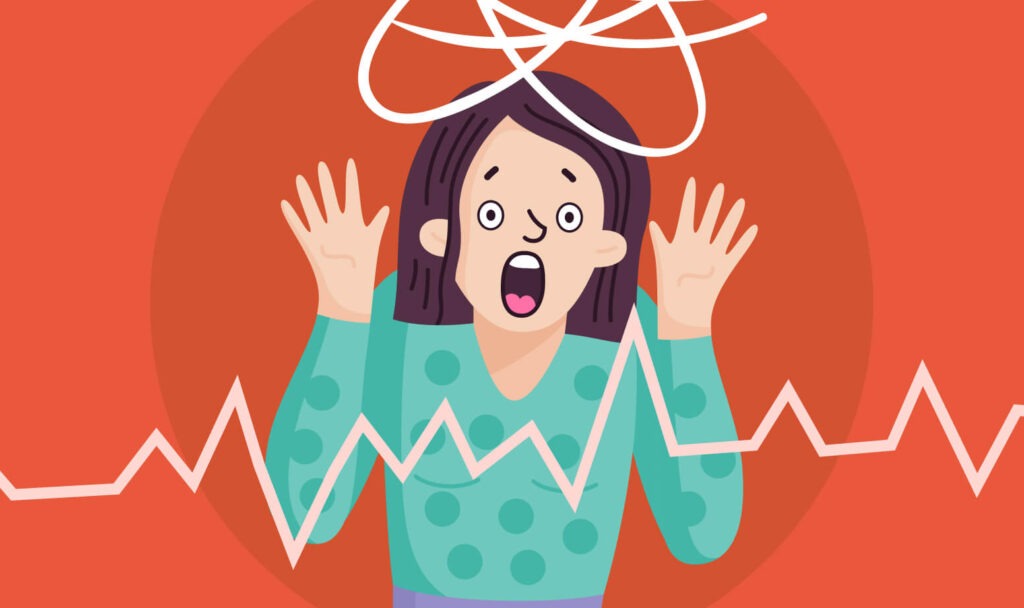
Panic attacks are intense periods of fear or discomfort that are often accompanied by physical and emotional symptoms. Individuals may experience them as overwhelming waves of fear that can come without any warning.
Real-Life Experiences of Anxiety-Induced Panic Attacks and Flashes
- “My heart rate can get up into the 140s-150s at peak, pacing, hyperventilating, sometimes shakiness if I’m hyperventilating too fast, fatigue.”
- “Sometimes I feel liquid spilling in my head (odd head sensations), manual breathing. Sometimes even waves of nausea or vertigo. It exacerbates my health anxiety and makes it all worse.”
- “My panic attacks are usually triggered by mild physical discomfort. For the past three years, it’s been the head and the fear of tumors and aneurysms. Lately, it has moved to the heart.”
- “That mild discomfort then triggers a sudden moment (a sort of flash) where I feel like I’m dying, or falling, or losing control. I feel detached from reality and my own body, like I cannot really get a grip anymore. The thought of being in the process of dying is front and center.”
- “My hands and feet sometimes suddenly feel cold, shortness of breath, lately crying is also part of the panic symptoms.”
- “Yeah, that falling sensation is so accurate. It always feels a bit like a surge or spike of adrenaline kicks me in the chest, almost like the feeling you get when you suddenly lose your footing or when an elevator drops you.”
What Causes Panic Attacks During Anxiety?
Panic attacks during anxiety are triggered by the same above-mentioned body’s acute stress response. Unlike anxiety, panic attacks can activate without any apparent reason or as a reaction to a perceived threat.
This response floods the body with stress hormones, which prepare the body for a fight or flight response but can lead to overwhelming physical symptoms even when there is no real danger.
How do you calm a panic attack?
- Focused Breathing Techniques: Breathing exercises like deep breathing or paced respiration can help control hyperventilation and reduce the intensity of a panic attack.
- Grounding Techniques: Techniques that engage the senses can help divert attention from panic symptoms and anchor your mind in the present.
- Cognitive Behavioral Therapy (CBT): CBT can help modify the thought patterns that trigger panic attacks, teaching how to approach fearful situations more calmly.
- Medication: In some cases, doctors may prescribe calming or anti-anxiety medication to help manage symptoms and prevent panic attacks.
- Exercise: Regular light physical activity can help reduce the frequency and severity of panic attacks by reducing overall levels of tension and stress.
- Support Networks: Sharing experiences with others who understand what you’re going through can provide comfort and practical advice.
In support groups, people have shared these insights on what has helped them manage their panic attacks:
- “Physical exercise has been a game changer for me. It seems to burn off some of that excess adrenaline.”
- “Writing down what I feel during a panic attack helps me to disconnect from the fear. It’s like once it’s on paper, it’s less in my head.”
- “I’ve learned to recognize the early signs of a panic attack and immediately start a grounding technique like naming objects I see around me.”
Sleep Apnea & Anxiety
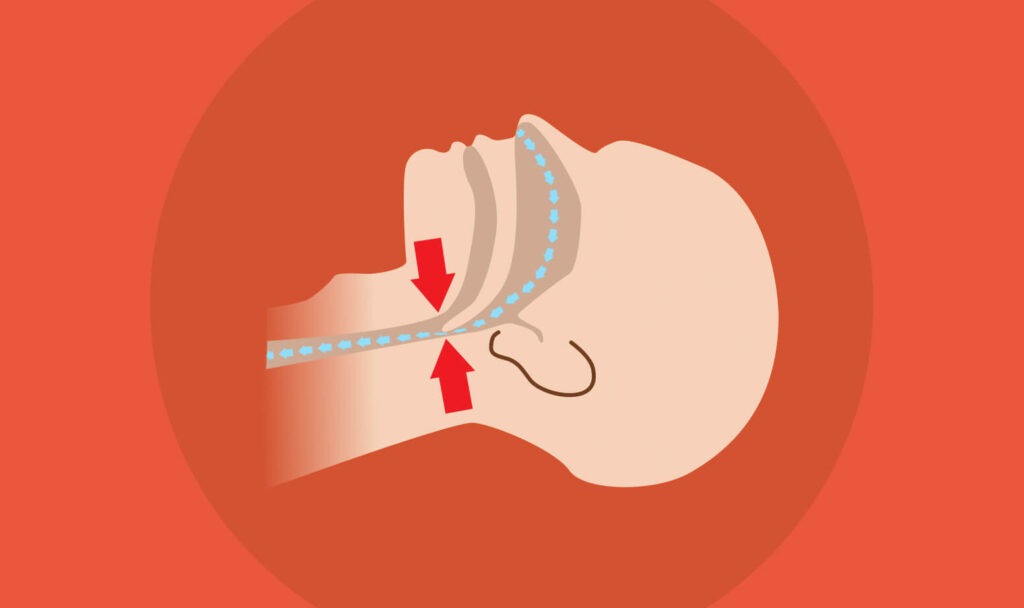
Sleep apnea is a condition that causes breathing to stop or become shallow during the night. These disruptions in breathing are called “apneas,” and they usually last around 10 seconds and can occur multiple times per hour in severe cases.
Anxiety and sleep apnea are like fish and water. Find one of them, and you will usually find the other as well.
A growing amount of research indicates that sleep apnea and anxiety are connected. It’s likely that each condition makes the other worse. Disturbed sleep due to sleep apnea can increase daytime stress and fatigue. Anxiety can also trigger and worsen sleep apnea by making it harder to fall asleep at night. Additionally, people with sleep apnea were also more likely to have both anxiety and depression than just one or the other.
Sleep Apnea Treatment
If you have both sleep apnea and anxiety, it’s important to seek treatment for both conditions.
It’s recommended to see a doctor if you think you might have sleep apnea.
The first choice of treatment for sleep apnea is positive airway pressure (PAP) therapy, which requires sleeping with a small mask over your nose or over your nose and mouth. The mask blows pressurized air into your lungs as you sleep to keep your airways open and prevent apneas.
Sleep Disturbances From Anxiety
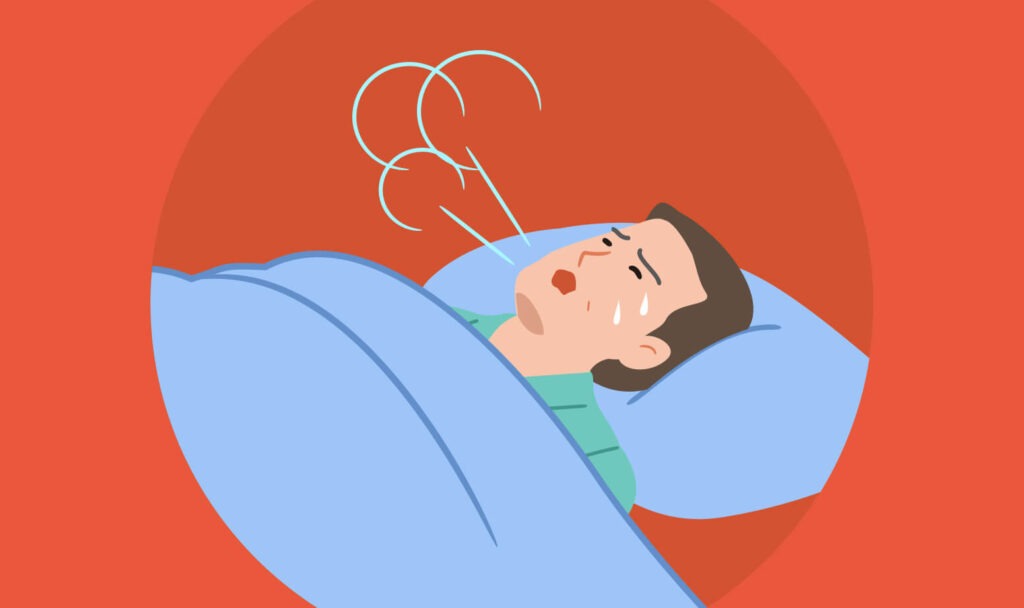
The sleep problems and symptoms from anxiety can come in many other shapes and forms. To give you an idea, here are some real-life experiences from others:
- “I am waking up all of a sudden in the middle of the night with strong heartbeats.”
- ”The worst for me is that every time I fall asleep, I keep jumping up an hour or two later, and my heart races.”
- ”When I’m in the process of going to sleep, I feel like someone is choking me and putting pressure on my chest and throat, for a few seconds I’m paralyzed.”
- ”Yes, I wake up at 3:00 and start screaming, losing breath, chest pain, dry throat, shaking, choking, arm pain and unable to stand, etc..”
- ”Yes, it’s like quick little internal body jolts but it only happens when I’m in the process of going to sleep.”
- ”I can’t sleep ’cause I’m scared I might die.”
Sleep Anxiety
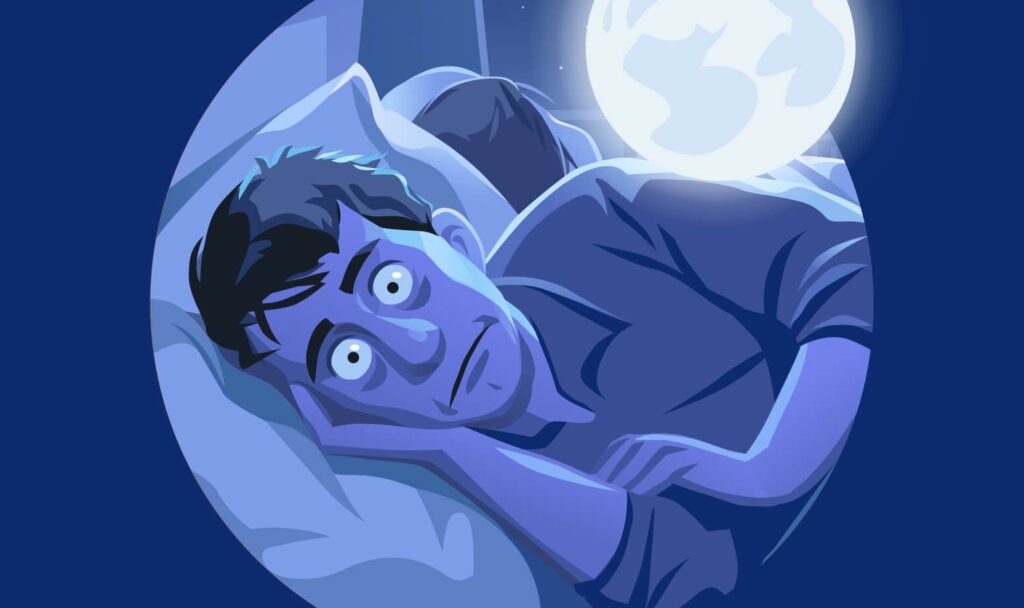
After experiencing some of the above-mentioned sleep issues, many people develop a fear of going to sleep.
This is called sleep anxiety. It is a form of anticipatory anxiety, which involves a sense of dread and preoccupation.
The causes and treatments are similar to other previous symptoms.
Ringing in Ears (Tinnitus)
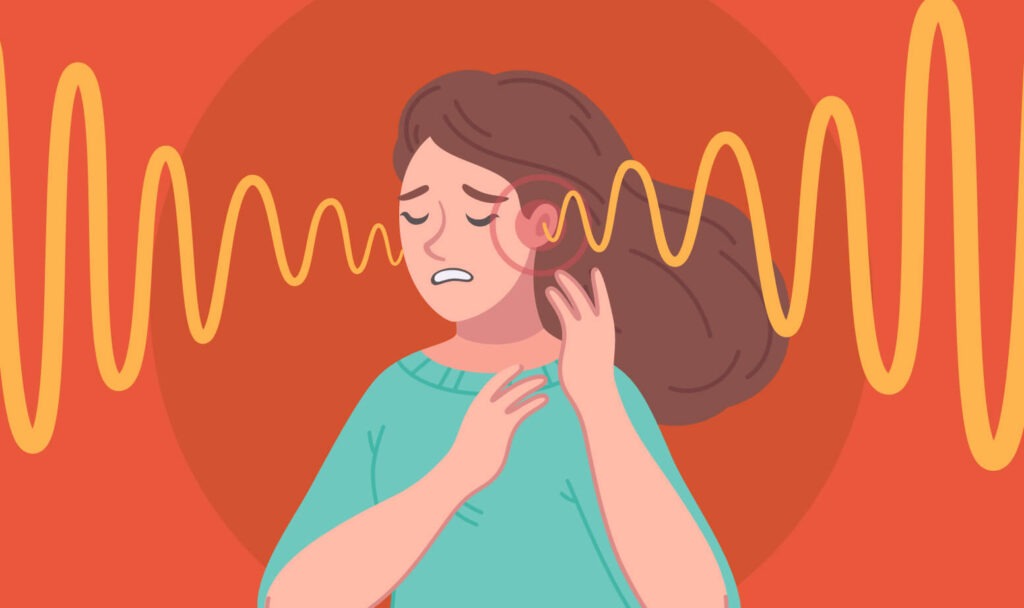
Tinnitus, commonly referred to as ringing in the ears, often manifests as buzzing, ringing, or other persistent noise in the ears that does not have an external source. Many individuals with anxiety experience tinnitus intermittently or constantly, which can significantly disrupt daily functioning and sleep patterns.
Real-Life Experiences of Ringing in Ears
- “Ringing in one ear for a few seconds, and then it’s over a few times a day.”
- “I’ve had ringing in my ears for a month now when I had a panic attack, and it doesn’t seem to be going away.”
- “I can’t tell if my high anxiety is causing the ringing or I’m just amplifying a small noise I had before. Either way, it’s not helping me get over my anxiety and seems to be making things worse.”
- “It was usually temporary bursts of high frequency noise that would then quiet down, but this time it didn’t go away. I writhed in bed as terrible thoughts filled my mind.”
What Causes Ringing in Ears during anxiety?
Anxiety can exacerbate or even trigger tinnitus. This condition is often temporary but can become prolonged in some cases. Anxiety-related tinnitus is believed to be linked to heightened awareness and sensitivity to bodily sensations, which is a trademark move of anxiety disorders. Additionally, the stress response can affect blood flow and pressure in the inner ear, exacerbating or triggering the perception of tinnitus.
How to Get Rid of the Ringing in Ears?
- Sound Therapy and Ambient Noise: Using white noise machines or ambient sound apps can help mask the ringing, making it less noticeable and reducing its impact on your sleep and daily life.
- Mindfulness and Acceptance: Learning to accept the tinnitus rather than fighting it can reduce the stress and anxiety associated with the noise. Practices like mindfulness meditation can help shift focus away from the tinnitus.
- Professional Consultation: Seeing a hearing specialist can provide insights and potential treatments specific to your case. As one individual recounted, “My hearing specialist was more helpful than I expected. She introduced me to tinnitus retraining therapy, which has significantly reduced my distress.”
- Reduce Focus on the Noise: Actively trying not to focus on the noise when it occurs can help decrease its perceived volume over time. “I’ve learned to redirect my attention whenever the ringing starts. Focusing on other tasks or engaging in hobbies helps keep my mind off it,” explains a sufferer who has found relief.
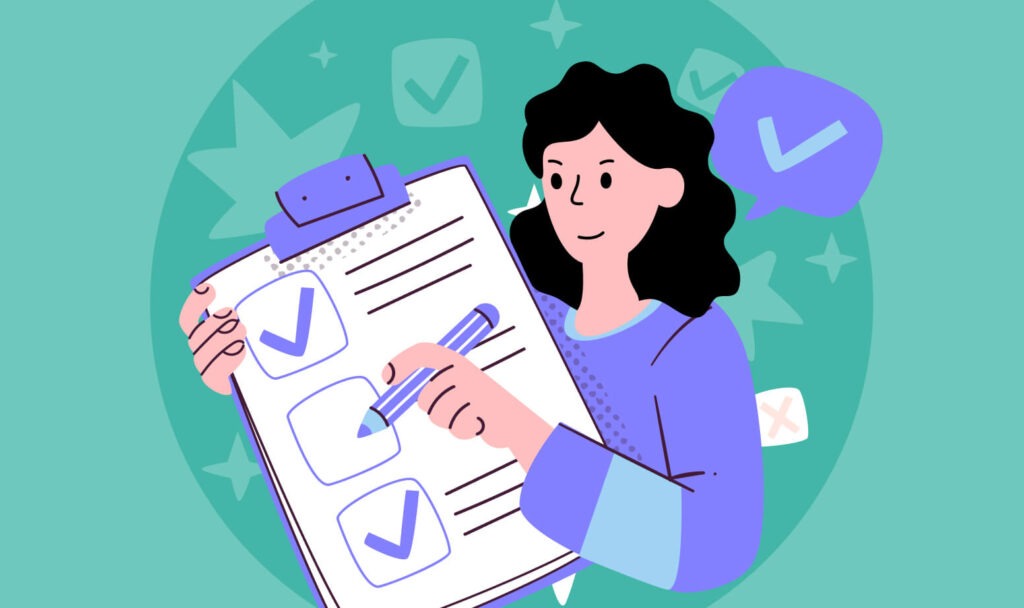
As we wrap up this guide, here are key takeaways to help you manage and get rid of anxiety symptoms more effectively:
Key Takeaways
- Anxiety serves a purpose. Your body is built to protect your life, and it has gotten good at it through thousands of years of evolution. Symptoms like difficulty catching a satisfying breath, a lump in your throat, dizziness, numbness, etc., aren’t just discomforts. They’re your body signaling a need to slow down both physically and mentally. It’s a part of the fight-or-flight survival mechanism, built into you for protection.
- You are not broken and not alone. Every third person has some sort of anxiety disorder, so you’re not dysfunctional. Being aware of various anxiety symptoms, from the commonly known to the lesser known, is crucial for taking control of your anxiety. Our partner psychologists say that many of their patients burst out in happy tears when they first find out that many others have the same symptoms and they’re not lethal.
- Your body is built to fight off real tigers not imaginary ones. Anxiety symptoms often arise from your body’s primal fight-or-flight response. Our bodies are not adept at distinguishing between real and perceived threats, resulting in the same physiological responses whether you’re fleeing an attacker or stressing over what your colleagues thing about you. This reaction can affect everything from your heart rate to your digestion, exemplified by common stomach issues during anxiety episodes, such as nausea or a feeling of butterflies. In essence, the majority of symptoms stem from the body reallocating resources during stress, de-emphasizing non-essential functions like digestion. Why? Because when a predator attacked your ancestors for many millenia, all the energy had to be directed to their big muscle groups and heart. Things like digestion and immunity were not so crucial when running from a hungry mountain lion. Unfortunately, the intangible or imaginary stressors of modern life fell upon us too fast for our bodies to adapt.
- Uncover your triggers and stress management techniques. As our brains are still catching up with the rapid increase in stimuli, we have to learn to remind our bodies that these modern stressors are not lethal and we must add relaxation methods to our daily routines.
Effective Treatment Strategies for Anxiety:
- Breathing Exercises: “When I’m gasping for breath, focusing on deep, slow breathing helps me calm down almost immediately.”
- Do a blood analysis. Many patients report eliminating or reducing anxiety by addressing magnesium deficiency, vitamin D deficiency, etc. Each body and situation is unique.
- Mindfulness and Meditation: “Focusing on the present moment reduces the frequency of my heart racing.”
- Physical Activity: Regular exercise alleviates muscle tension and improves mood.
- Cognitive Behavioral Techniques: Challenging negative thoughts and practicing exposure therapy are effective for managing irrational fears and phobias.
- Journaling: Tracking your feelings and symptoms can help identify triggers and monitor progress.
- Gradual Exposure: “I started by just driving around the block to manage my fear of driving. Gradually, I increased the distance, and it’s really helped reduce my anxiety.”
- Building a Support Network: Connecting with others who share similar experiences can provide emotional support and practical advice, reinforcing that you are not alone.
- Seeking Professional Help: For persistent or severe anxiety, professional guidance from mental health professionals can provide tailored advice and treatment options.
The bottom line
If you’ll remember one thing from this article, let it be this: anxiety and panic attacks, while intensely uncomfortable, are not inherently dangerous and tend to pass quickly—often within about 10 minutes. Recognizing this can transform your approach to these experiences, helping you to see them as temporary and manageable.
Managing anxiety is a continuous journey, and while it may require ongoing effort, having the right tools like the Calmer app and support can lead to significant improvements in your mental health and overall well-being.
